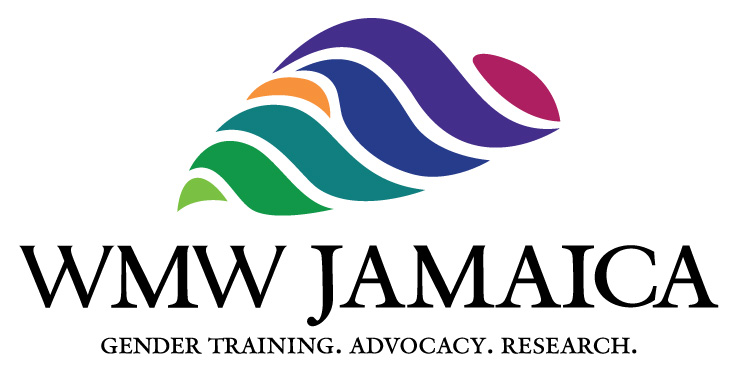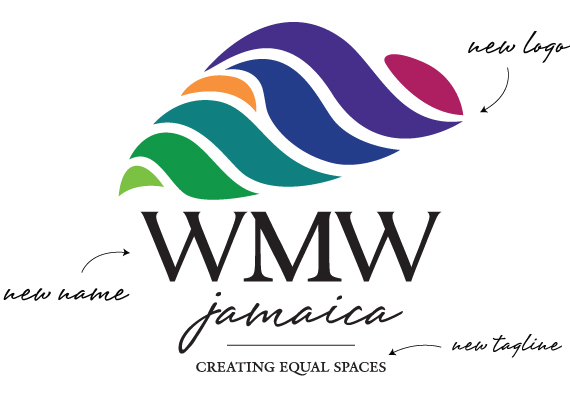Journeying from Women’s Media Watch to WMW-Jamaica
/Certain events only take on historical significance in retrospect. A forum convened twenty-five years ago, in 1987, to address issues of violence against women is only meaningful today because this event signifies the beginnings of a collective, a troupe, a sisterhood; the organization we know as Women’s Media Watch – Jamaica (WMW).
WMW was born from a deep concern that the media in the Caribbean had a pivotal role to play in the increasing prevalence of violence against women. “We came together as a group of persons looking at the portrayal of both men and women in the media, because we believed that it impacts on how men treat women in society”, explains Michelle Golding, a founding member. Even in an age of cable TV, mass media and the internet, it’s not always easy to see how lurid images of women bending over backwards, both literally and metaphorically, to sell product in an advertisement or to please the male lead in a music video, shape our notions of the roles men and women play in society.
But as long as twenty-five years ago, WMW had recognized that positioning women as subservient, sexualized or subjugated in the media had a direct correlation with violence against women in the real world. “We weren’t even using the term ‘gender’ back then”, recalls Hilary Nicholson, another founding member. “But what made a difference in (our) analysis was that while others saw violence only in terms of dead bodies and guns, we saw early on the connections between violence, stereotypes and sexism in the media”.
WMW’s initial focus was on critiquing advertisements that objectified women, for example by focusing on particular body parts in order to sell a product. However, within a year the group had realized that merely critiquing the media was insufficient to bring about adequate change in the media, in society, or in women’s lives. A shift had to be made from critiquing the dominant discourse, to shaping the discourse around gender and the media. In order to achieve this change, WMW began its work with a wide cross-section of people encompassing men and women, students and teachers, children and adults, policy-makers and social workers.
“The media landscape changed drastically in the past twenty five years. The increasing complexity of information technologies and the mass media made it literally impossible to continually monitor the media. Our focus therefore shifted from media monitoring, to include media literacy programmes, particularly for young people and adolescents” explains founding member Judith Wedderburn.
WMW is now well known for its training programmes, which includes conducting over 1,500 gender sensitization and training workshops locally and internationally. Recognizing the importance of young media practitioners and social workers to cultivate a gender-sensitive outlook, WMW developed and began to teach a course entitled ‘Media, Gender and Development’ at CARIMAC, as well as a module on Gender and Development at UWI.
Simultaneously, working at the policy-making level, WMW consulted with the Jamaican Broadcasting Commission to develop gender-aware policy guidelines for broadcasting. Acknowledging the need for both men and women to work together for social change, WMW pioneered gender training for male leaders in Jamaica. As Training Coordinator Georgia Love points out, “as approaches to gender justice have shifted, WMWs willingness to incorporate the voices of men -- not seeing them as problems to be fixed, but as part of the solution in terms of fixing the problem -- has been a distinctive and important part of how WMW works.”
Herein lies one of the most significant aspects of WMW’s methodology: its recognition that social transformation comes from tapping into people’s emotional responses to what equality and justice mean in an everyday, personal way.
In the Jamaican context, one of the most effective ways of engaging people is theatre. As Love explains, “one of the beautiful things about Jamaica and our people is that we’re very dramatic and theatrical in our everyday experiences. Simple things often take on a whole colour and flair, so it made sense to use theatre as a way to teach”.
WMW’s participatory methodology uses drama to analyze sophisticated and complex issues surrounding gender, masculinity, power and violence. As Administrative Assistant Keishagay Jackson explains, however, it does so in a way that bridges the gap between complex theoretical concepts and people’s lived experiences: “by interacting with the audience, people learn more based on their own experiences, because the drama brings (these issues) alive”.
As anyone familiar with work in the non-profit sector will be aware, an organization’s achievements must be tangible, preferably expressible in numerical terms. For WMW, twenty-five years in operation, dozens of volunteer members, hundreds of trainings, thousands of people impacted, add up to quite a satisfactory figure. Yet an organization’s most significant achievements are often intangible, unnumbered, immeasurable.
In founding member Patricia Donald’s experience “the most persistent impact of being a part of WMW is that I am totally incapable of looking at ordinary life without looking through the gender lens – this awareness ramifies through every aspect of my life.” Lasting social change is the amalgamation of those innumerable moments, where the work of organizations like WMW causes someone to look up and see the world in a whole new light.
As Jamaica celebrates its 50th year of independence, Women’s Media Watch celebrates its 25th year in operation. Both share the vision of a Jamaican people that are truly independent, equal, peaceful, and free.




